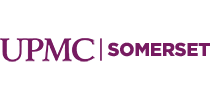Have you been told that you snore or stop your breathing? Have you ever fallen asleep while driving?
The Sleep Lab at UPMC Somerset specializes in diagnosing and treating sleep disorders.
Services Offered
Diagnostic Sleep Study
The sleep study is done in the hospital to determine whether a patient is positive for sleep apnea or other sleep disorders.
Home Sleep Study
Home sleep studies are primarily used to diagnose obstructive sleep apnea. It allows you to sleep at home wearing equipment that collects information about how you breathe during sleep.
CPAP/BIPAP Titration Study
The sleep study is performed in the hospital to see how therapy will help treat obstructive sleep apnea
Split-Night Sleep Study
The sleep study is performed in the hospital where we would diagnose obstructive sleep apnea during the first half of the study and then provide treatment with CPAP/BIPAP the second half of the night.
Multiple Sleep Latency Test (M.S.L.T.)
This test is a full-day test following your overnight sleep study. It is a standard tool used to diagnose narcolepsy and daytime sleepiness.
Talk with your physician if you experience any of the following symptoms:
- excessive daytime sleepiness
- loud or disruptive snoring
- gasping or choking during sleep
- grogginess or morning headaches
- frequent urination at night
- depression or irritability
Common disorders that we diagnose
- Obstructive sleep apnea
- Restless Leg Syndrome
- Nocturnal oxygenation problems
- Narcolepsy
- Common treatments for sleep disorders
- Continuous positive airway pressure (CPAP)
- Bi-level Airway Pressure (BiPAP)
- Oral appliances
- Weight loss
- Surgical procedures
- Medication
- Good sleep habits
Frequently Asked Questions
What is an overnight sleep study?
An overnight sleep study (nocturnal polysomnogram) is a
recording of brain waves (EEG), eye movements, certain kinds of muscles activity, cardiac activity, respiratory activity, nasal and oral breathing, snoring, and blood oxygen concentration during a regular night of sleep.
Why is an overnight sleep study necessary?
Doctors can learn a great deal about your sleep and waking patterns from a sleep study. An overnight study reveals information about sleep, including how many hours you actually slept, how often you woke up, what stages and depths of sleep you went through during the night.
Is the test valid if I am not able to sleep in these unusual circumstances?
Yes. Most people do not sleep as well in a sleep lab as they would at home. In most cases, we can still get the information we need, even if you don’t sleep as well as you normally do.
Does this hurt?
No. We gather all the information we need through noninvasive surface contact electrodes. No needles are used and there is nothing painful about this test.
Does insurance cover a sleep study?
Sleep studies are covered by most medical insurances. Each individual plan does vary. You or your physician’s office staff can call the insurance company to verify the coverage.
Talk to your physician about your sleep concerns.
And, remember…you must have an order for a sleep study from your physician.
